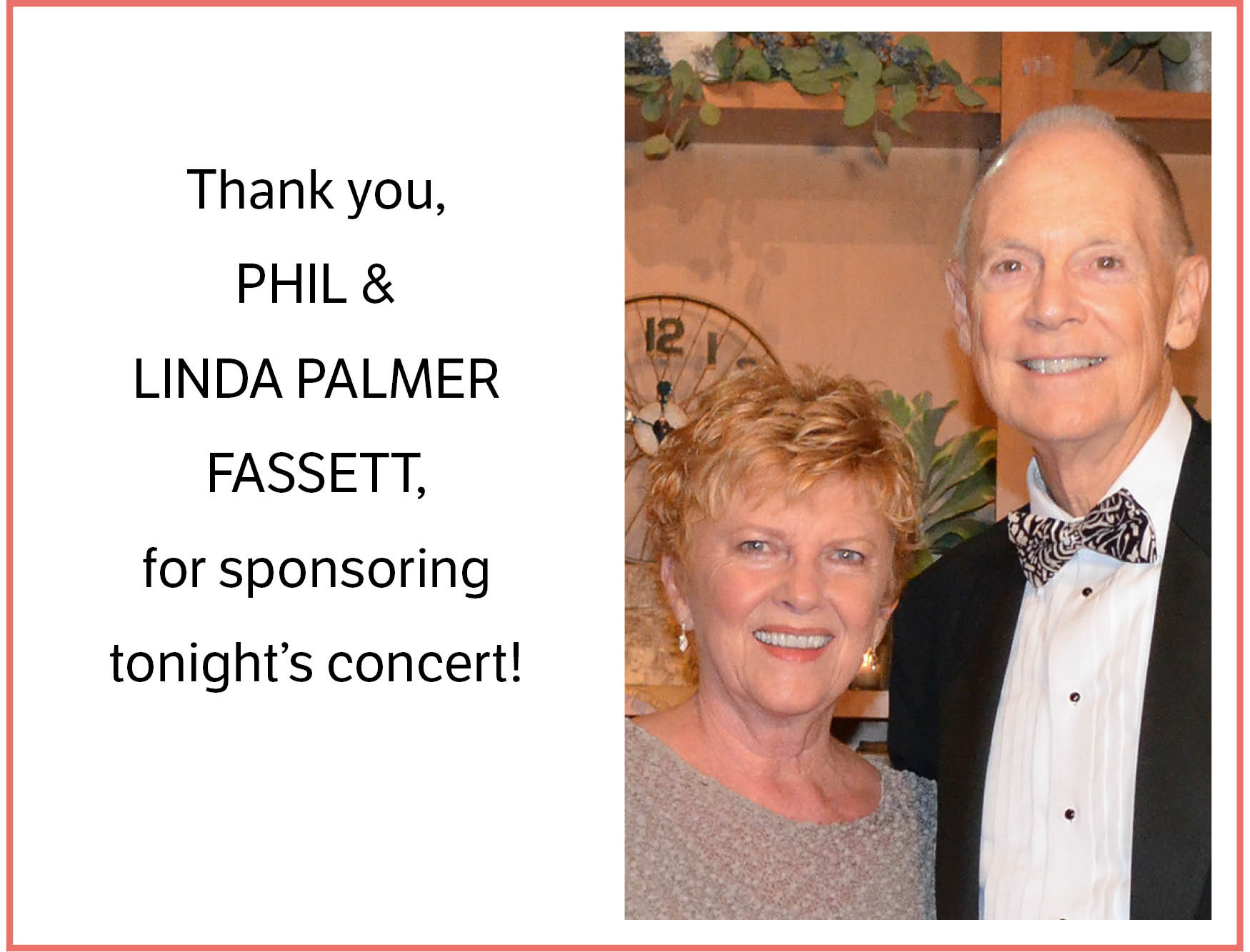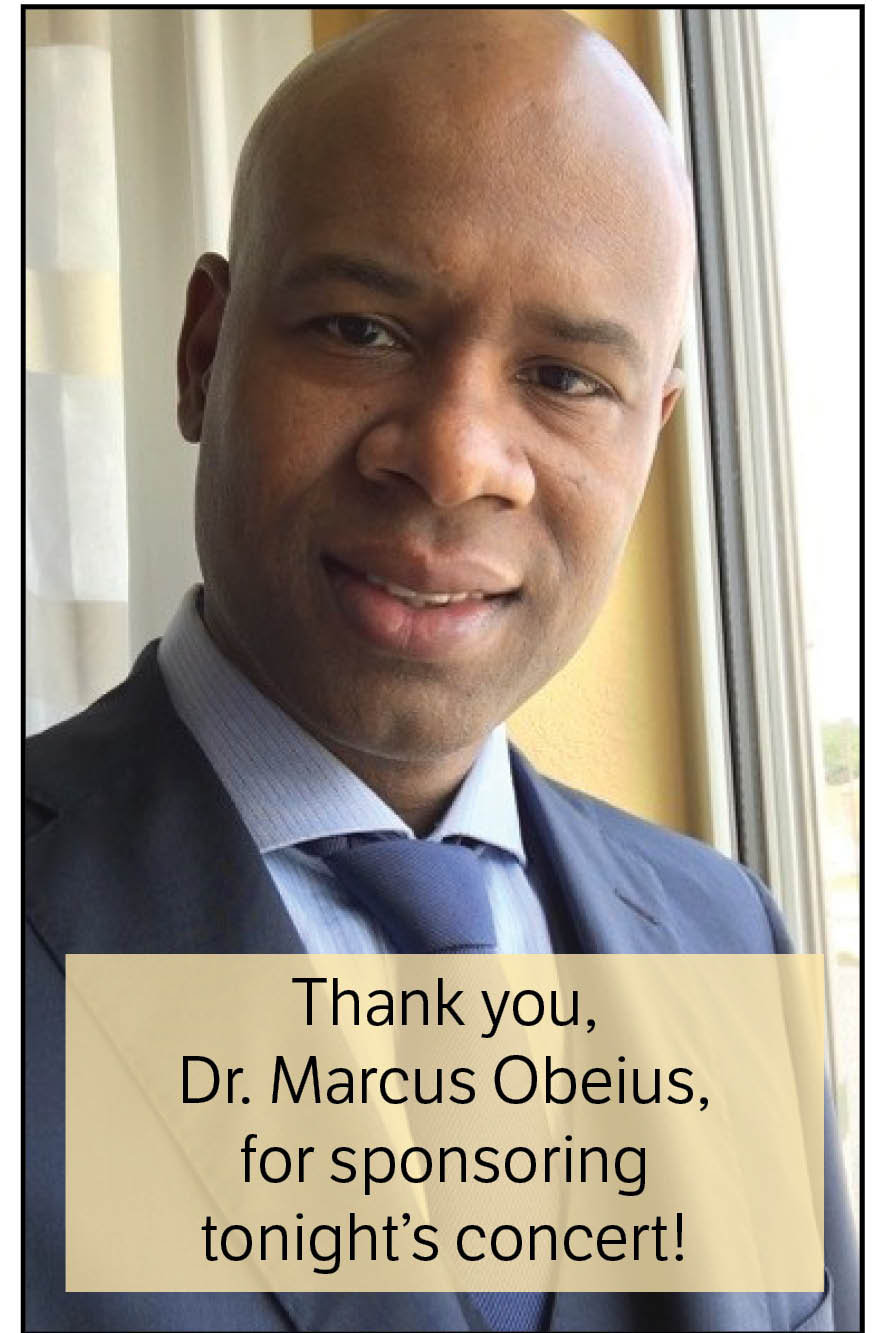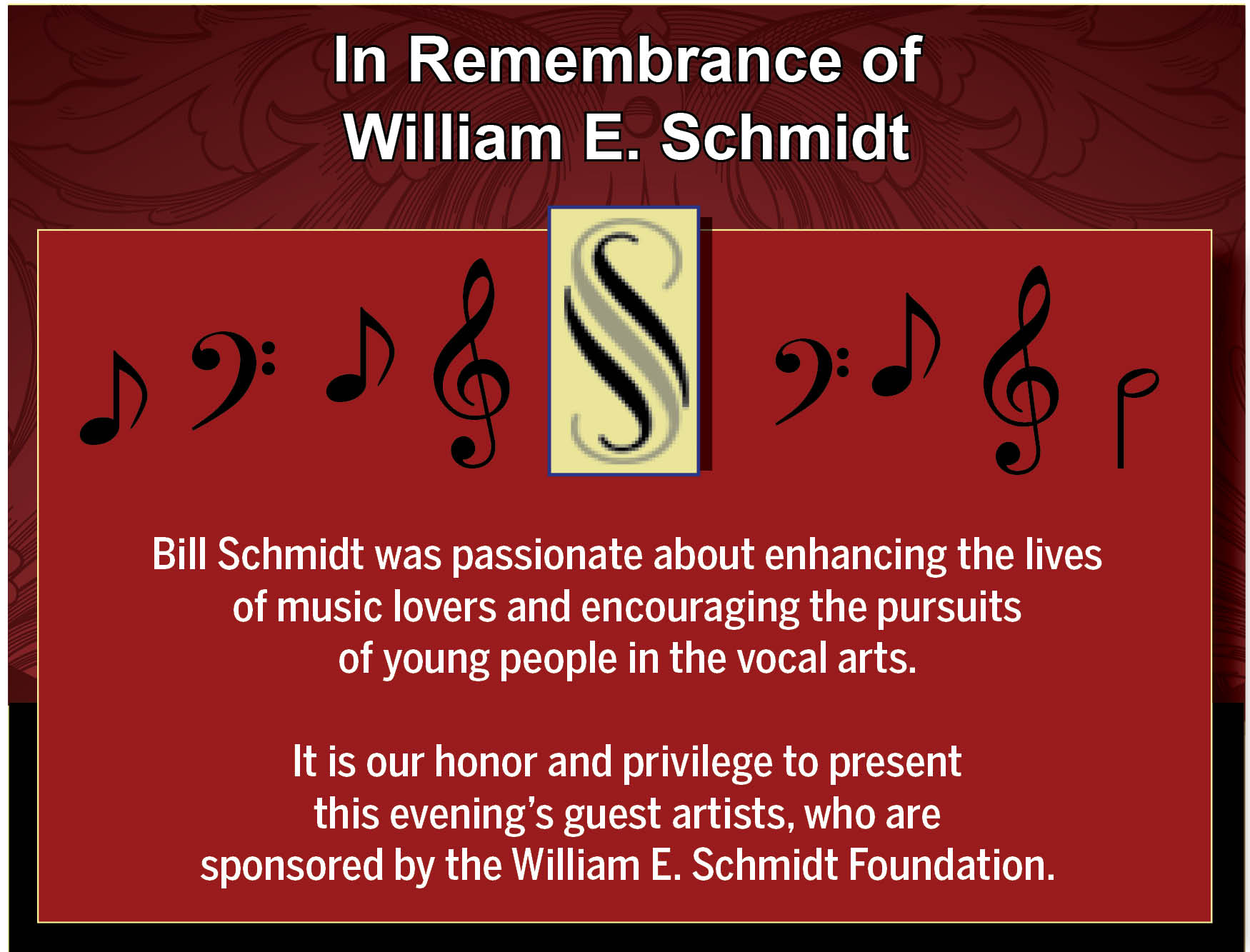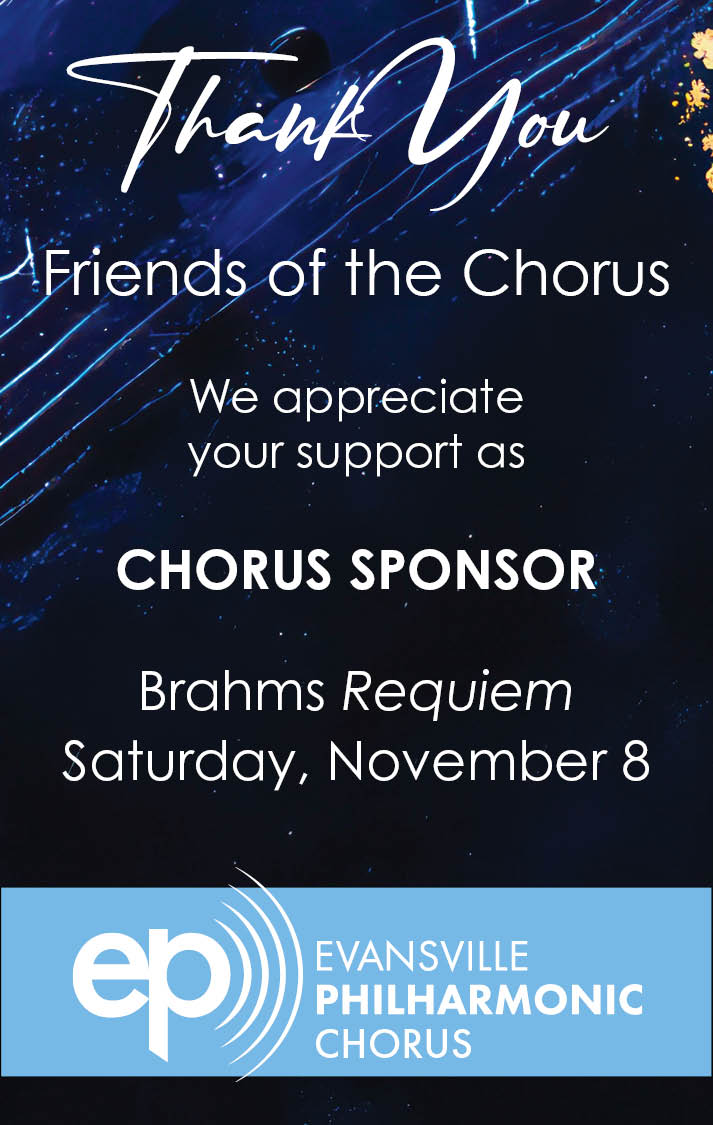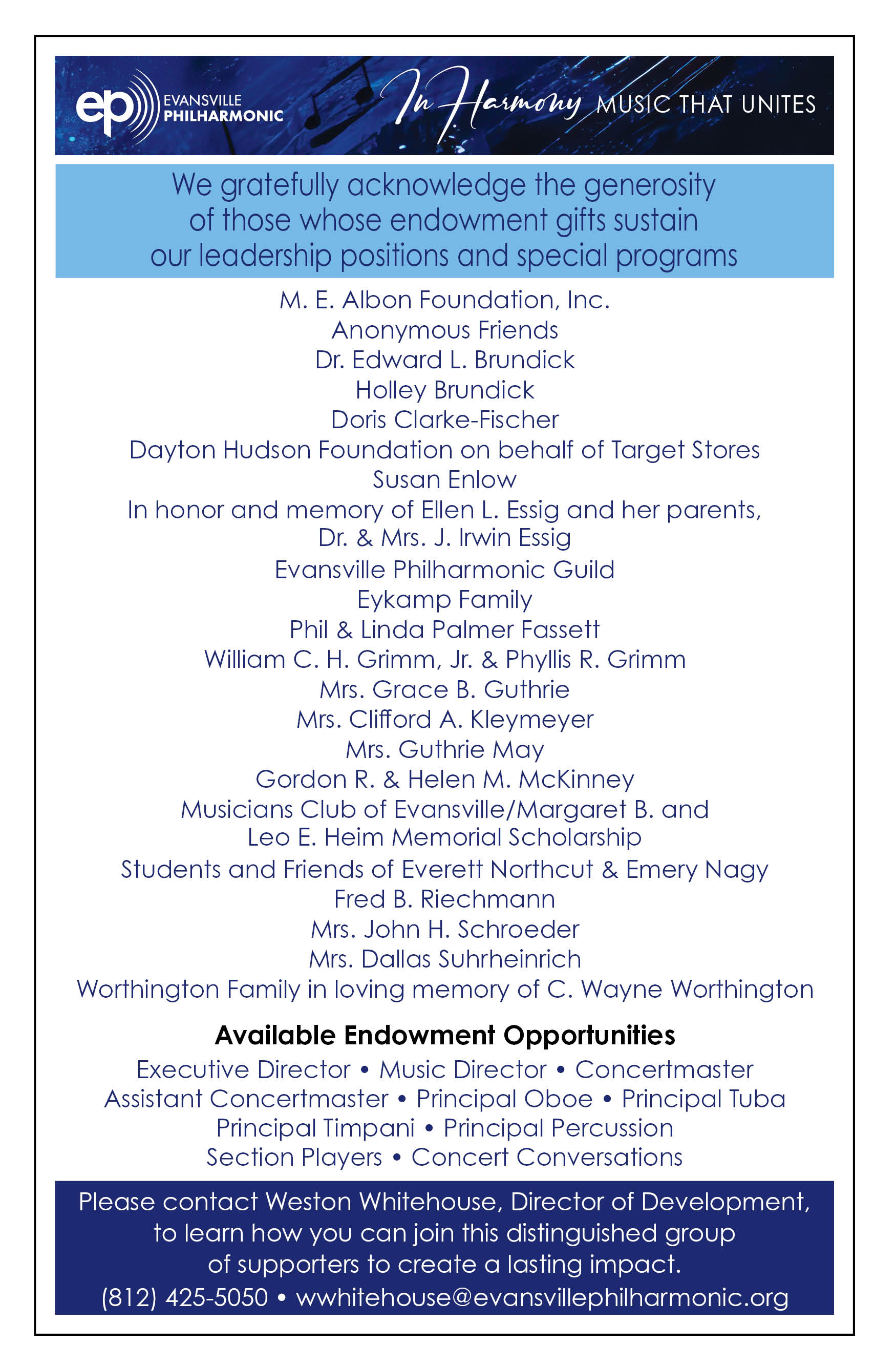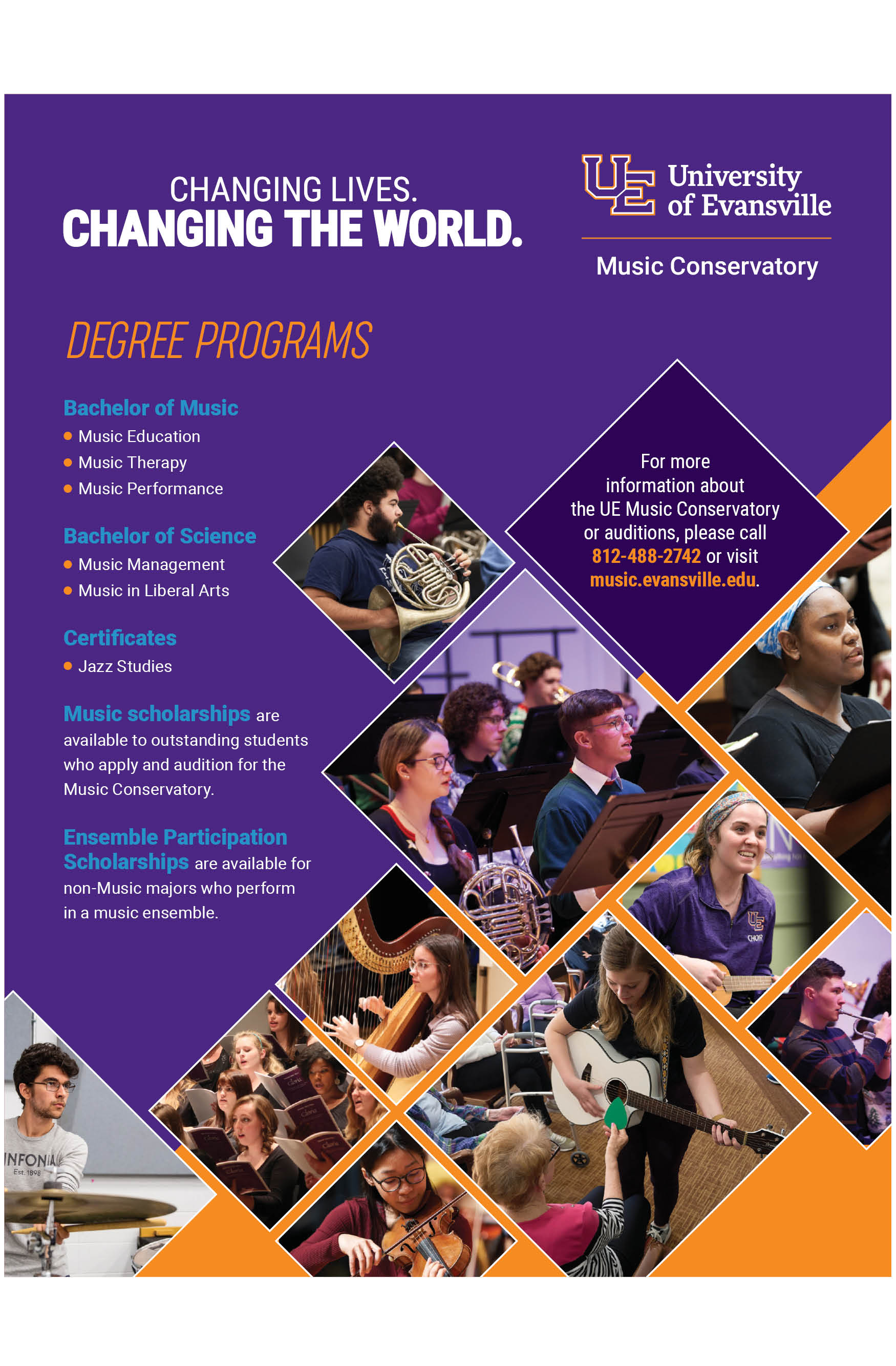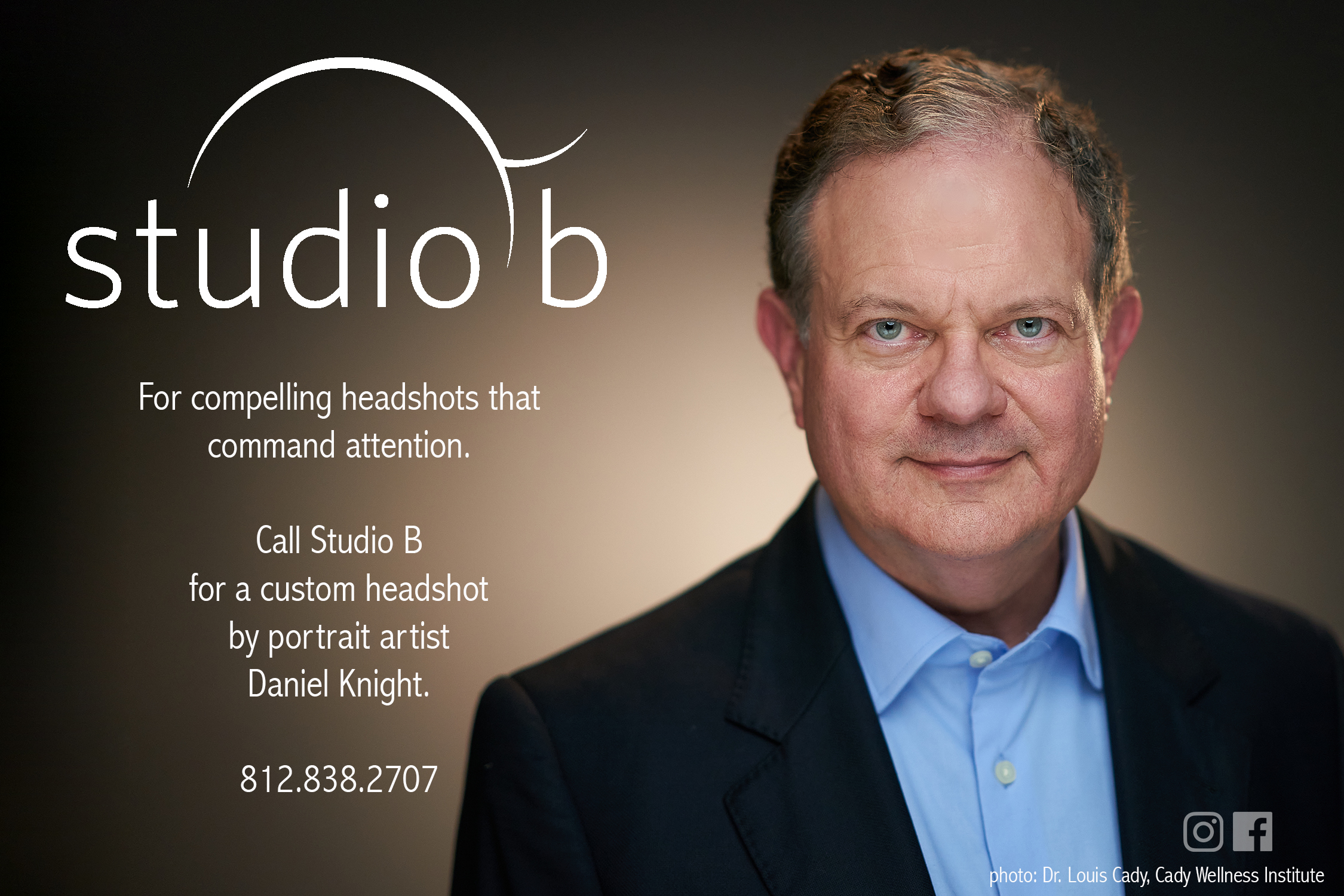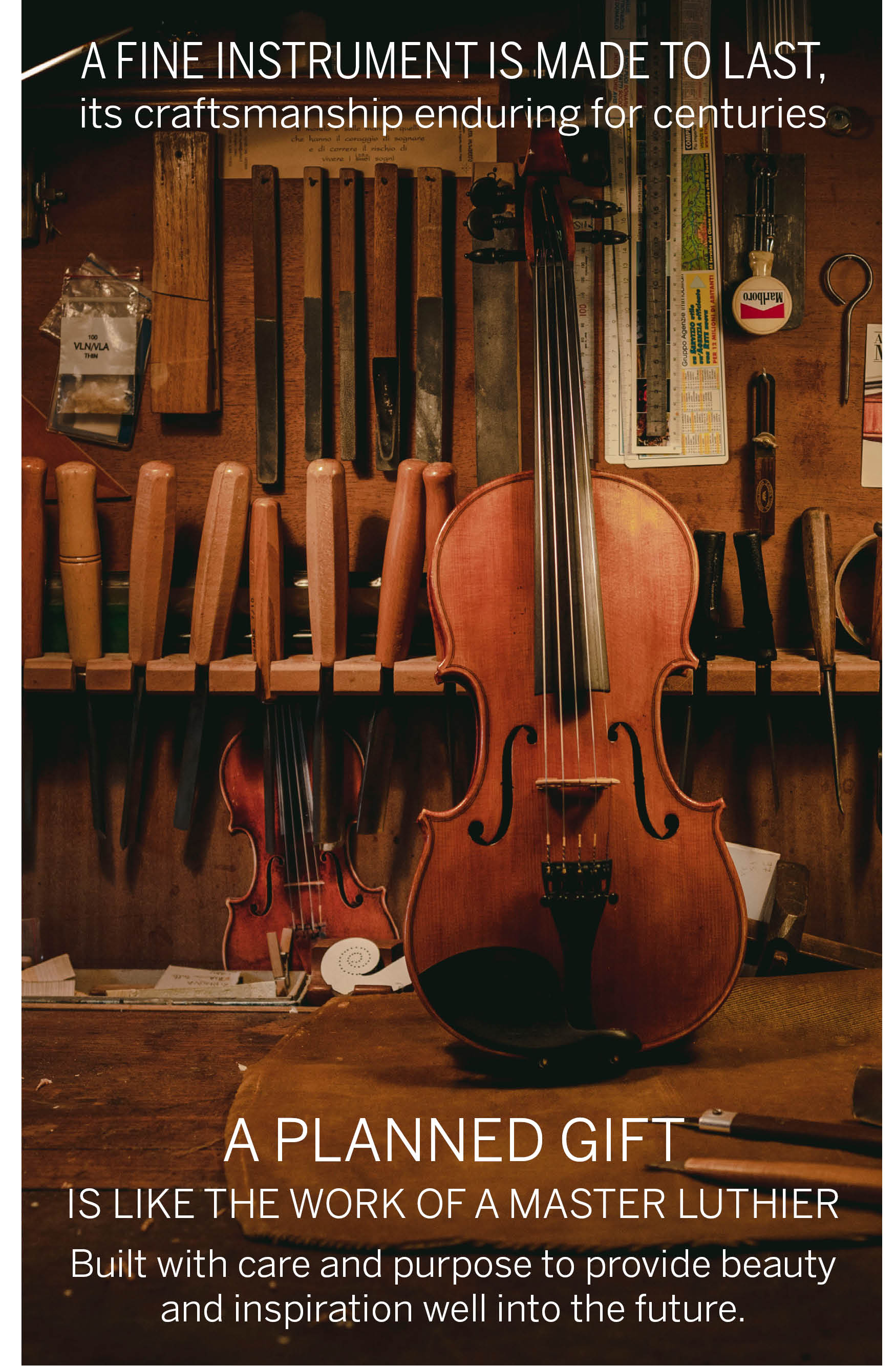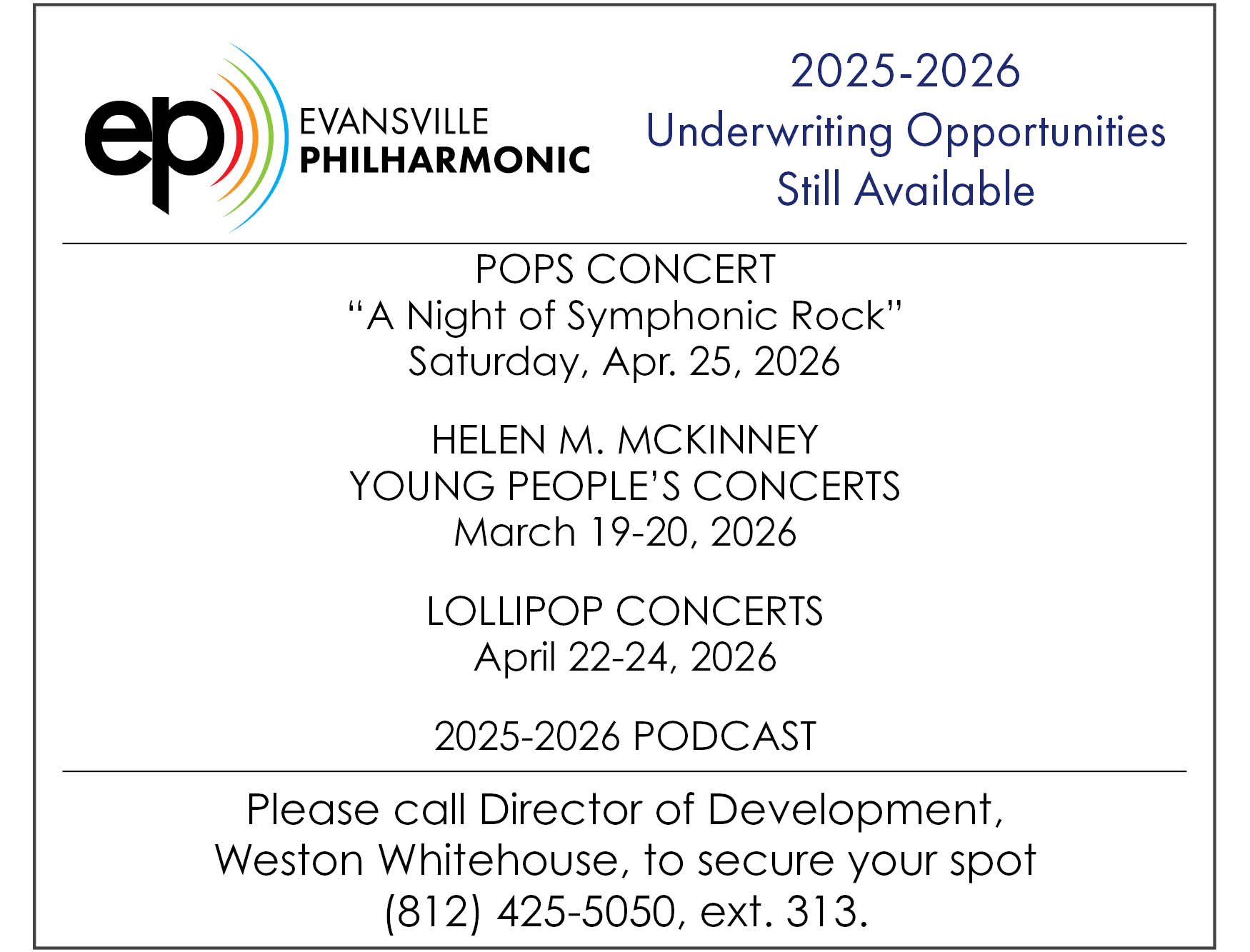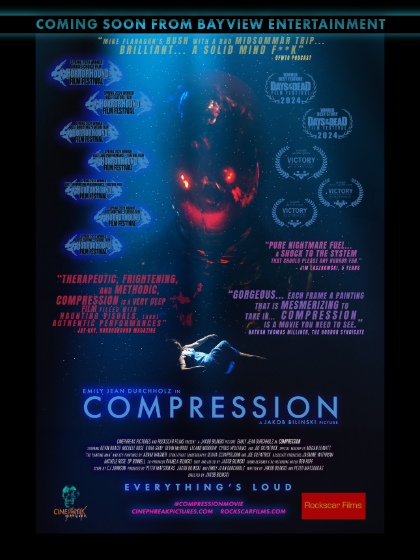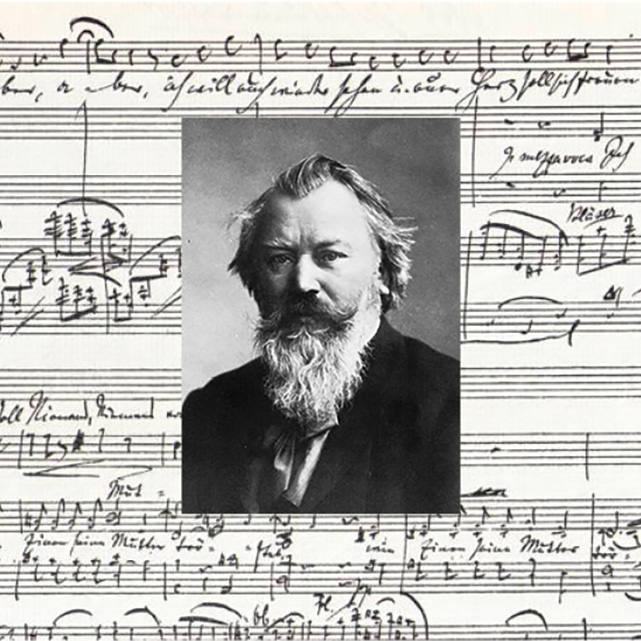

CONCERT SPONSORS |  | GUEST ARTIST Sponsor |  | CHORUS SPONSOR |

EVANSVILLE PHILHARMONIC ORCHESTRA
Roger Kalia, Conductor
Laura Santamaria-Mendez, Soprano
Michael Dean, Baritone
EVANSVILLE PHILHARMONIC CHORUS
Andrea Drury, Chorus Master
KENJI BUNCH | Supermaximum | |
JOHANNES BRAHMS | Ein deutsches Requiem (A German Requiem) |
Official IT Services Provider
Official Photographer
Daniel Knight of Studio B Photography
Ticket Sponsor
Steinway is the official piano of the Evansville Philharmonic Orchestra
VIOLIN II
VIOLA
Ryan Tolentino
CELLO
BASS
FLUTE
OBOE
CLARINET
BASSOON
HORN
TRUMPET
TROMBONE
TUBA
TIMPANI
PERCUSSION
PIANO
HARP
SABBATICAL
RECORDING
STAGE PRODUCTION
*Eykamp String Quartet member
Written by Bill Hemminger
SUPERMAXIMUM
KENJI BUNCH
Duration: 12 Minutes
Born in 1973, Kenji Bunch—whose mother is Japanese (hence the first name “Kenji”) and whose father is of Scottish descent—is “one of the new faces of new music,” according to the New York Times. Working now in Portland, Oregon, Kenji has been dubbed “one of the most listener-friendly composers of his generation” by the Oregonian. The Juilliard-trained violist and composer is the artistic director of Fear No Music. He teaches at Portland State University, Reed College, and he is the director of the Portland Youth Philharmonic. His compositions blend both classical and popular musical sounds and styles and “transcend cultural and generational barriers.” His works have been performed around the United States as well as in numerous European countries. Among a host of other works and recordings, he has written a string quartet, a string octet, incidental music for a ballet, a piano concerto (for his wife Monica Ohuchi), and Host Freedom for narrator and chamber orchestra (written for George Takei, AKA Mr. Sulu of “Star Trek” fame) which recounts the internment of Japanese-American citizens during World War II.
Tonight’s 2011 work (redone for full orchestra in 2013) was inspired by chain gang songs from prison camps in the Jim Crow south. The title Supermaximum also calls up images of incarceration in the worst of prison conditions. How can music explore these most inhumane of human experiences? Clearly, the composer posits that music—and the arts by extension—can attest to the emotional truth of all facets of human existence and to the need for revealing these truths.
EIN DEUTSCHES REQUIEM
(A GERMAN REQUIEM)
JOHANNES BRAHMS
Duration: 68 Minutes
His life (1833-97) spanning the 19th century, Brahms chafed at the highly romantic music of his popular contemporaries Franz Liszt and Richard Wagner. Brahms was friends with the more musically traditional Robert Schumann and became especially attached to Clara Schumann after Robert’s death in 1856. Temperamentally taciturn, irascible and reserved, Brahms never married. Happily for his audiences, though, in his music Brahms was able to dredge up great reserves of feelings that infuse all his artistic works. Nowadays known for his massive, highly-wrought symphonies and concertos, Brahms nonetheless produced lovely gems—mostly for the piano—at the end of his career, in many ways anticipating impressionism and the non-classical sounds of the new century.
Begun as a tribute to Brahms’ friend Robert Schumann, A German Requiem—having reached its final form in 1869—is unlike all other requiems commonly concertized. In the first place, Brahms, a Lutheran, discarded the Roman Catholic rite with its Latin text. Instead, he selected Bible verses that pleased him, from the Old Testament as well as the New, and all of which were extracted from the German Bible of Martin Luther. There is no “hellfire and brimstone” section of this work, no admonitory glimpses of hell that one hears in Verdi’s or other settings. Brahms’ work is at least as much about comforting the living as it concerns mourning the dead. It is Brahms’ most significant choral work, and it figures among the most beloved works of all time.
The German Requiem consists of seven movements with chorus and orchestra; one includes a soprano solo and two feature a baritone. The fourth, touching movement, “How lovely is thy dwelling place, O Lord of hosts,” is likely well known to church choristers and ensemble singers. This elegant movement occurs precisely at the center point of the requiem. The sixth movement is, in part, a setting of “the trumpet shall sound / and the dead shall be raised incorruptible,” which audience members will recognize as part of Handel’s Messiah as well, performed now for many years in Evansville just before Christmas. Two very different settings, both beautifully rendered. Brahms’ version culminates in a great fugue whose climax reaffirms that God be accorded all “glory, power, and honor.” The fugue is powerful too, following the very dramatic and rhythmically driving setting of “Death, where is thy sting.”
Ein deutsches Requiem, op. 45
By Johannes Brahms
1. Chorus
Matthew 5: 4; Psalm 126: 5-6
Blessed are those who mourn,
for they shall be comforted.
2. Chorus
I Peter 1: 24; James 5: 7, 8a; I Peter 1: 25; Isaiah 35: 10
For all flesh is like the grass,
and all the magnificence of mortals
is like the flowers of the grass.
The grass has withered,
and the flower has fallen away.
So now be patient, dear friends,
until the life hereafter.
Behold, a husbandman waits
for the precious fruit of the earth
and is patient until he receives
the early and later rain.
But the word of the Lord endures forever.
The redeemed of the Lord will return
and come to Zion with shouts of joy;
eternal joy will be upon their heads;
joy and delight will overcome them
and sorrow and sighing will have to depart.
3. Baritone Solo and Chorus
Psalm 39: 4-7; Wisdom of Solomon 3: 1
Lord, teach me
that I must have an end,
and that my life bas an end,
and that I must pass away
Behold, my days here
are but a handbreadth before you,
and my life is nothing before you.
Ah, how insignificant all mortals are,
and yet they live so confidently.
They go about like a phantom,
and create so much vain disquiet;
they gather things,
and know not who will receive them.
Now, Lord, in whom shall I find consolation?
I trust in you.
The souls of the righteous are in God's hands,
and no torment touches them.
4. Chorus
Psalm 84: 1, 2, 4
How lovely are your dwellings,
0 Lord of hosts!
My soul yearns and longs
for the courts of the Lord;
my body and soul
rejoice in the living God.
Blessed are those who dwell in your house,
those who praise you forever more
5. Soprano Solo and Chorus
John 16: 22; Isaiah 66: 13; Ecclesiasticus 51: 35
You now have sorrow;
but I want to see you again
and your heart shall rejoice
and no one shall take your joy from you.
Look upon me:
I have toiled and labored a brief time,
and now I have found great comfort.
I want to comfort you,
as one is comforted by his mother.
6. Chorus and Baritone Solo
Hebrews 13: 14; 1 Corinthians 15: 51, 52, 54, 55; Revelation 4: 11
For here we have no permanent place,
But we seek the one to come.
Behold, I tell you a mystery:
we will not all die,
but we will all be transformed,
and transformed suddenly, in an instant,
at the time of the last trumpet.
For the trumpet will sound,
and the dead will rise up incorruptible,
and we will be transformed.
Then will be fulfilled
the word that is written:
Death is swallowed up in victory.
Death, where is your sting?
Hell, where is your victory?
Lord, you are worthy to receive praise
and honor and might,
for you have created all things,
and by your will they have their being and are created.
7. Chorus
Revelation 14: 13
Blessed are the dead who die
in the Lord from now on.
Yea, the Spirit says
that they may rest from their labor,
for their works follow after them.
- Podcast
- Conductor Biographies
- Bill Hemminger Biography
- Photos
- Videos
- Articles and Reviews
- Radio Broadcast Schedule
- History of the EPO
- Mission and Values
- Board of Directors 2025-2026
- Sponsors 2025-2026
- Philharmonic Gives Back
- Donors 12/1/2024 - 12/1/2025
- Thoughtful Tributes 12/1/2024 - 12/1/2025
- Past Events


